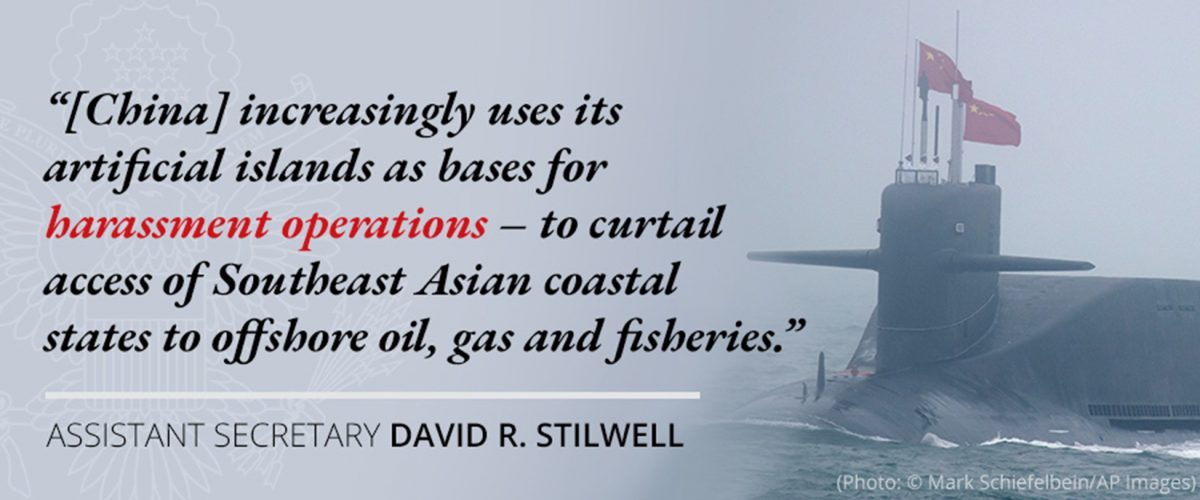A U.S. State Department Report
Across much of the Indo-Pacific region, the Chinese Communist Party (CCP) is using military and economic coercion to bully its neighbors, advance unlawful maritime claims, threaten maritime shipping lanes, and destabilize territory along the periphery of the People’s Republic of China (PRC). This predatory conduct increases the risk of miscalculation and conflict. The United States stands with its Southeast Asian allies and partners to champion a free and open Indo-Pacific.
Establishing Overseas Military Bases
As the PRC’s overseas economic and security interests expand under its One Belt One Road initiative (BRI or OBOR), it seeks to expand its overseas military footprint to protect those interests. Specifically, the PRC seeks to establish global logistics and basing infrastructure to allow the People’s Liberation Army (PLA) to project and sustain military power at greater distances. It abuses commercial arrangements at host country ports to support military functions and hides the true purpose of its installations overseas. For example, PRC officials stated for many years that China would never seek overseas bases—up until they officially opened a base in Djibouti in 2017. The PRC refers to its base in Djibouti as a logistics facility, even though PLA Navy Marines are stationed there equipped with armored vehicles and artillery.
By providing PRC entities with access to and control of ports and other facilities, countries may find they are inadvertently supporting the PRC’s military expansion and thus also Beijing’s revisionist geopolitical goals. For example, media reports detail secret military agreements between China and Cambodia. A Chinese military presence in Cambodia could threaten both regional stability and the position of ASEAN. Further, it could undermine the prospects for the peaceful settlement of disputes, the promotion of maritime safety and security, and the freedom of navigation and overflight.
To date, the impact of PRC militarization is most acutely felt in the South China Sea, where the PRC built several bases despite President Xi’s unambiguous promise in 2015 to not militarize the Spratly Islands. Beijing now uses those locations to expand its intimidation and coercion of many Southeast Asian coastal states and undermine their efforts to exercise their sovereign rights under international law.
Stealing Resources in the South China Sea
Beijing’s claims to offshore resources across much of the South China Sea are widely denounced as unlawful. Beijing uses intimidation to undermine the sovereign rights of Southeast Asian coastal states in the South China Sea, bully them out of offshore resources, threaten them out of shipping lanes, assert unilateral dominion, and deprive fishermen of access to their livelihoods. Beijing seeks to replace international law with “might makes right.” The PRC has no legal grounds to unilaterally impose its will on the region. Beijing has offered no coherent legal basis for its “Nine-Dashed Line” claim in the South China Sea, since formally announcing it in 2009. In a unanimous decision on July 12, 2016, an Arbitral Tribunal constituted under the 1982 Law of the Sea Convention—to which the PRC is a State Party—rejected much of the PRC’s South China Sea maritime claims as having no basis in international law.
Beijing should not be allowed to treat the South China Sea as its maritime empire. The United States stands with its Southeast Asian allies and partners in protecting their sovereign rights to offshore resources, consistent with their rights and obligations under international law. Further, the United States stands with the international community in defense of freedom of the seas—rejecting any efforts to impose “might makes right” in the South China Sea or the wider region.
